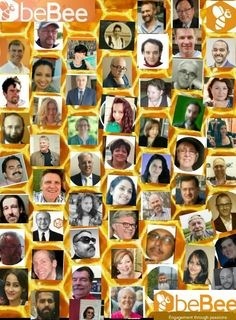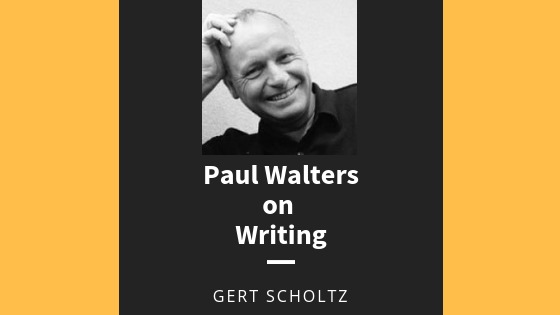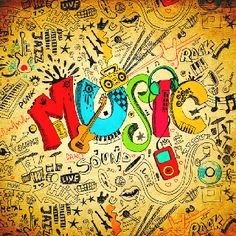Why We Like BeBee Stories

Graham Swift said: “Man is the storytelling animal. Wherever he goes he wants to leave behind not a chaotic wake, not an empty space, but the comforting marker-buoys and trail signs of stories”. Through the writers on beBee, the wonder of story is re-awakened. A beautiful blog, a heartfelt tale, a flowing factual narrative; stories enthrall.
What does neuroscience tell us about the ancient and uniquely human love for story?
Relationship Building
One of our brain’s unique features is its ability to form and recognize patterns in the world around us. Patterns that enable us to react quickly and appropriately to the environment and people we encounter. By forming predictive patterns, the energy load on our grey matter is reduced and our sense of control is increased. Some neuroscientists describe the brain’s main function as one large pattern making and prediction machine.
This is where story comes in. Stories invoke the brain to fill in gaps and to anticipate future outcomes; it ignites the brain’s pattern-making ability. Steven Pinker says: “One might have expected natural selection to have weeded out any inclination to engage in imaginary worlds rather than the real one.” He continues: "Stories evolved as an important tool for learning and for developing relationships with others". When listening to or reading a tale, the mind transcends the now and places us in an imaginary situation; safe from the potential perils of real life.
Ordering Life
Stories are mental rehearsals and of events that may occur in our lives. It plays to the human need of wanting to have control over our circumstances. Constructing a story imposes meaning where there is apparent randomness, and so affords a strengthened sense of meaning to our lives and thoughts. In a study students were shown a short film in which two triangles and circle moved about randomly. All but one student explained what they saw as "the circle was worried and the little triangle was an innocent young thing." We are inclined to see causality and emotion in events - even when it is only geometric shapes moving.
Stories engage through what philosophers call the hermeneutic circle. This means understanding works in a circular way; we understand a narrative only by grasping in advance the relation of a specific part to the whole in which it belongs, even we one can only arrive at a sense of the whole by working through its parts. The oscillation between ongoing predictions our minds make while engaged in a narrative, and the actual unfolding of events, draws us in and intrigues us. The tension between dissonance and harmonization compels us to read and absorb.
Brain Activation
Research shows reading a novel improves mind functioning. Over nine days researchers took brain scans of students who read Robert Harris’ book Pompeii. The scans showed increased brain connectivity on the mornings following the reading assignments. Importantly, the increased buzz in the brains were in a variety of cerebral areas including parts responsible for language comprehension, recording of sensations and co-ordination of movement.
Those who read more have increased empathy and are better at theory of mind; the ability to put yourself in another’s shoes. There is substantial overlap in the cerebral areas we use to understand a tale and that which we use to navigate our social world – in particular those interactions where we are trying to figure out the thoughts and intention of others. Narratives offer a unique opportunity to engage in personal and social simulation as we identify with the characters’ hopes and frustrations, guess their hidden motives and track their encounters with others. We peek into someone's conscience to see how they think and act.
Imagine you recline in a bran scanner while reading a story on a screen, one word at a time. When you read about something the protagonist did such as “He picked up his sword”, the same areas of your brain are activated as if you were actually picking up a sword. These areas include the motor planning and soma-sensory areas. When you read of an activity, the parts of your brain required to physically do it, fire up as well. The degree of intensity may be less but the same neural changes occur internally when you read about someone else experiencing or doing something.
Emotional Linking
Oxytocin is often called the chemical of cooperation. It enhances our ability to experience the emotions of others. Character driven stories with emotional content stimulates the release of oxytocin and increases our propensity to trust and show kindness. Stories with emotional content result in a deeper understanding and better recall of the content.
Aristotle, centuries ago distinguished oratory appeal in three categories. A recent analysis of effective talks discovered that 25% content was based on logos; data and logic, and the remaining 10% fell under ethos; establishing credibility for oneself. A full 65% of the content was what Aristotle called pathos; conveying personal emotion.
Most neural studies on storytelling focus on one of two brains; that of the teller or that of the listener. What happens when we peer inside the neural workings of both at the same time? Both the teller and listener’s brains form the same neural activity, with that of the listener usually one to three seconds behind that of the teller. At the neural level the listener is drawn into the story in a very real and visceral way. At some points of the narrative, the listener’s brain jumps ahead to form predictive leaps demonstrating the pattern-forming characteristics of our minds. What’s more the extent of the brain pattern overlaps and activation between the two people, predicts the success of the communication.
Perhaps the biggest reason why we like BeBee stories is because we want to be part of a shared experience.
Donald Hebb coined the well-known phrase: “Neurons that fire together, wire together”.
Nowhere is this more true than in story.
(Image Credit: Fatima Williams)
Articles from Gert Scholtz
View blog
On BeBee we have come to know Paul Walters as an eminent travel writer. From all parts of the world, ...

This is the loudest post I have ever done on BeBee. · For some reason, I recalled some of my favorit ...

Ken Boddie is always a welcome presence on BeBee. He comments extensively, posts on a wide variety o ...
Related professionals
You may be interested in these jobs
-
Snr Professional Nurse
Found in: Talent ZA C2 - 4 days ago
Mediclinic Highveld Trichardt, South AfricaMAIN PURPOSE OF JOB · To ensure a safe, positive patient experience by supporting the unit manager in the co-ordination of patient care and management of the unit · KEY RESPONSIBILITY AREAS · Ensure comprehensive and safe patient care by mitigating risks and meeting set clinic ...
-

Senior Geotechnical Engineer
Found in: Talent ZA C2 - 3 days ago
Hire Resolve Johannesburg, South Africa Full timeHire Resolve's client is a leading multidisciplinary engineering consulting firm dedicated to providing innovative solutions to complex challenges. · Our client is seeking a highly skilled and experienced Senior Geotechnical Engineer to join their team in Johannesburg. The succe ...
-
Bookkeeper
Found in: Talent ZA 2A C2 - 3 days ago
Communicate Recruitment Johannesburg, South AfricaQualifications: Complete ICB · Skills: Advanced Excel · Pastel / Sage etc · Freight and Logistics experience is highly beneficial. · Job description: · Duties will include but are not limited to:Accounts payable and receivable, bank reconciliations, and general ledger · Managing ...


Comments
Gert Scholtz
7 years ago #34
Gert Scholtz
7 years ago #33
Javier \ud83d\udc1d beBee Thank you Javier. Your words in one of your posts: "Stories are powerful and shape both those who tell them and those who are themselves shaped by the storytellers.”
Gert Scholtz
7 years ago #32
Gerald Hecht Thank you for highlighting the Hebb quote and thank you for reading and sharing Gerald.
don kerr
7 years ago #31
Ali Anani
7 years ago #30
Ian Weinberg
7 years ago #29
Robert Cormack
7 years ago #28
Gert Scholtz
7 years ago #27
Javier Cámara-Rica 🐝🇪🇸
7 years ago #26
John White, MBA
7 years ago #25
CityVP Manjit
7 years ago #24
Jim Murray
7 years ago #23
Randy Keho
7 years ago #22
Javier Cámara-Rica 🐝🇪🇸
7 years ago #21
Flavia Toro Rodriguez beBee also needs story readers like you !!
Javier Cámara-Rica 🐝🇪🇸
7 years ago #20
exactly James McElearney. Bees are the protagonists, the heroes.
Gert Scholtz
7 years ago #19
Gert Scholtz
7 years ago #18
Gert Scholtz
7 years ago #17
Sara Jacobovici
7 years ago #16
Gert Scholtz
7 years ago #15
Gert Scholtz
7 years ago #14
Kevin Pashuk
7 years ago #13
Gert Scholtz
7 years ago #12
Thanks Louise - I like your story behind the story! Lisa Gallagher Great piece on Oxytocin - thanks.
Gert Scholtz
7 years ago #11
Thank you Louise - I appreciate your comments and your story behind the story. Don Kerr May the Ocytocin be with us! Thanks Dean
Dean Owen
7 years ago #10
Lisa Gallagher
7 years ago #9
Louise Smith
7 years ago #8
don kerr
7 years ago #7
Gert Scholtz
7 years ago #6
Gert Scholtz
7 years ago #5
Gert Scholtz
7 years ago #4
Javier Cámara-Rica 🐝🇪🇸
7 years ago #3
Gert Scholtz
7 years ago #2
Ken Boddie
7 years ago #1